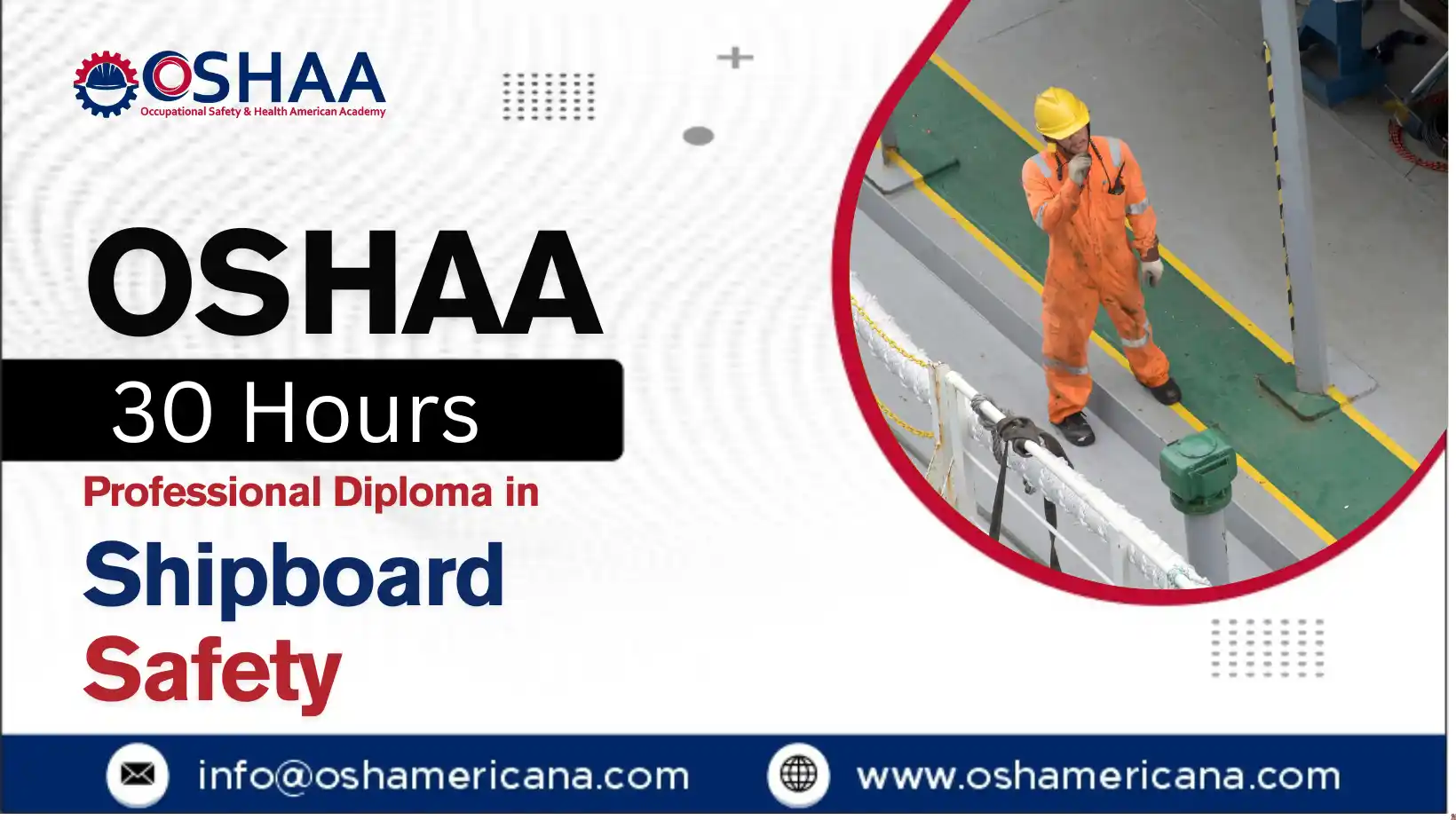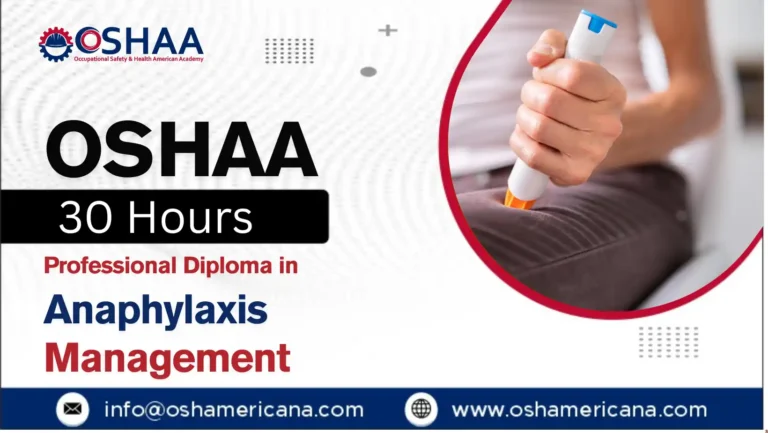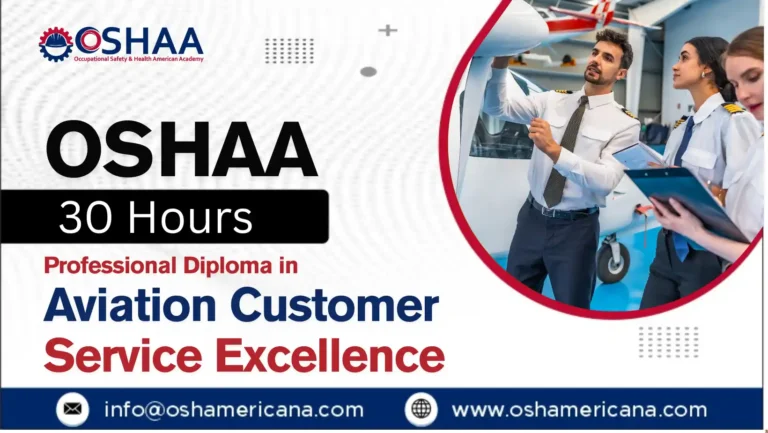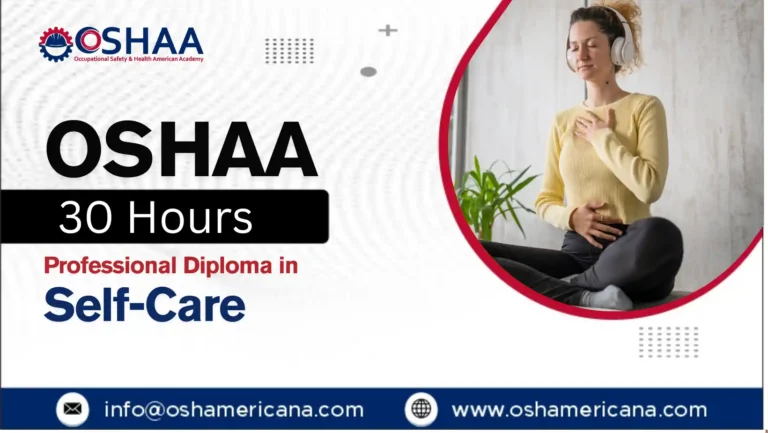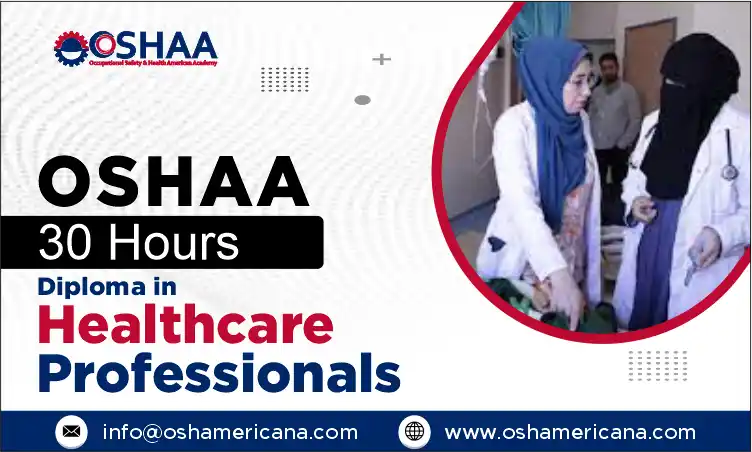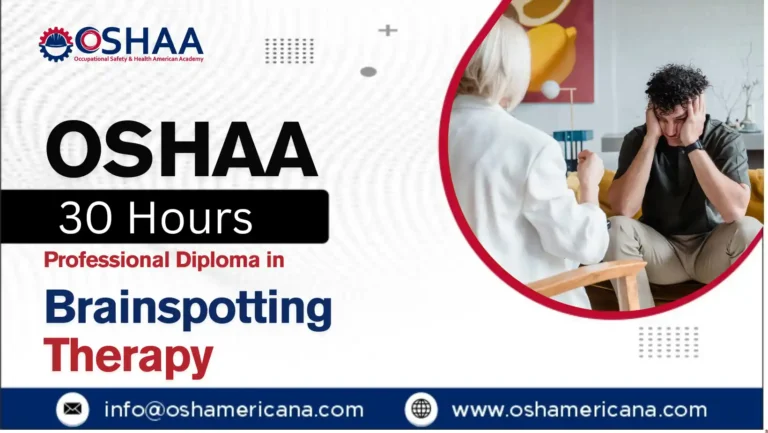Ensure Compliance and Crew Safety with the Diploma in Shipboard Safety
The OSHAA 30-Hours Professional Diploma in Shipboard Safety equips professionals, officers, and crew members with the knowledge and skills needed to maintain a secure maritime environment. It complements certifications and diplomas in occupational health, maritime operations, and safety management. Learners will develop practical expertise in assessing risks, responding to emergencies, and implementing preventive strategies that protect personnel, cargo, and the vessel itself. Completion of this diploma demonstrates a strong commitment to maritime safety and operational excellence.
Maritime operations involve complex environments where crew safety and vessel integrity are critical. This course provides an in-depth understanding of shipboard safety, highlighting key hazards, risk management strategies, and practical measures to prevent accidents. Participants will explore the principles of occupational safety at sea, covering fire safety, personal protective equipment, emergency preparedness, and regulatory compliance. By understanding these fundamentals, learners can contribute to a safer working environment onboard ships and ensure the wellbeing of all crew members.
The course also focuses on practical implementation of safety procedures and protocols in maritime settings. Learners will gain knowledge on hazard identification, safe handling of equipment, emergency response planning, and incident reporting procedures. Emphasis is placed on proactive risk management, teamwork, and effective communication during onboard operations. Participants will also understand how to monitor compliance, enforce safety standards, and foster a culture of safety that aligns with international maritime regulations and best practices.
OSHAA 30-Hours Professional Diploma in Shipboard Safety
Study Units
Learning Outcomes
Introduction to Shipboard Safety and International Maritime Regulations (3 hours)
- Understand the core principles of shipboard safety within maritime operations
- Recognise the role of international organisations such as IMO in safety regulation
- Identify key maritime safety conventions, including SOLAS and MARPOL
- Apply relevant safety codes and procedures in shipboard contexts
Identification of Shipboard Hazards and Risk Assessment Techniques (5 hours)
- Identify common physical, chemical, and operational hazards on board vessels
- Conduct structured risk assessments using maritime-specific frameworks
- Apply hazard identification tools such as Job Safety Analysis (JSA) and checklists
- Recommend appropriate control measures to mitigate identified risks
Use and Maintenance of Personal Protective Equipment (PPE) (3 hours)
- Select appropriate PPE based on specific shipboard tasks and hazards
- Demonstrate correct usage and fitting of common maritime PPE
- Understand maintenance, inspection, and storage procedures for PPE
- Recognise limitations and regulatory requirements related to PPE
Fire Prevention, Detection, and Shipboard Firefighting Procedures (4 hours)
- Identify common causes and classes of shipboard fires
- Understand the layout and function of fire detection and suppression systems
- Respond to different types of fires using appropriate extinguishing methods
- Participate in onboard firefighting drills and emergency coordination
Emergency Preparedness and Response Planning (6 hours)
- Develop ship-specific emergency response plans and protocols
- Recognise key roles and responsibilities during onboard emergencies
- Participate effectively in evacuation procedures and emergency drills
- Apply communication strategies during high-risk incidents and distress situations
Lifesaving Equipment and Survival Techniques at Sea (3 hours)
- Identify types of lifesaving appliances carried on various vessels
- Demonstrate correct usage of lifejackets, lifeboats, and immersion suits
- Understand survival priorities in man-overboard and abandonment scenarios
- Perform procedures for launching and operating lifesaving equipment
Safe Working Practices and Permit-to-Work Systems (3 hours)
- Understand the principles of safe working practices in confined and hazardous areas
- Implement lockout/tagout and permit-to-work systems onboard
- Promote housekeeping and hazard awareness in shipboard environments
- Reduce human error through adherence to safety protocols and checklists
Accident and Incident Reporting, Investigation, and Analysis (3 hours)
- Recognise the importance of timely and accurate accident reporting
- Complete standard maritime incident report forms and logs
- Participate in root cause analysis using methods such as the “5 Whys” and fishbone diagrams
- Apply findings from incident investigations to improve shipboard safety practices
Course Benefits: OSHAA 30-Hours Professional Diploma in Shipboard Safety
- Equips participants with comprehensive knowledge of international maritime safety regulations, including SOLAS and MARPOL
- Enhances ability to identify, assess, and control shipboard hazards effectively
- Develops practical skills in using firefighting equipment, lifesaving appliances, and personal protective gear
- Strengthens emergency preparedness and response capabilities for real-life maritime scenarios
- Promotes a proactive safety culture and leadership in shipboard environments
- Builds competence in conducting risk assessments, safety drills, and incident investigations
- Increases compliance with global maritime safety standards, improving vessel operational integrity
- Provides industry-recognised certification that supports career advancement in maritime and offshore sectors
- Fosters confidence in handling safety responsibilities on various types of vessels, including cargo, passenger, and offshore platforms
- Encourages continuous professional development in the field of maritime safety management
The OSHAA 30-Hours Professional Diploma in Shipboard Safety is designed for participants working in, or aspiring to enter, safety-critical roles within the maritime and offshore industries. It is particularly suitable for:
- Deck and engine crew members seeking to strengthen their onboard safety knowledge
- Marine officers and supervisors responsible for implementing safety procedures
- Safety and compliance personnel working on ships, oil rigs, or offshore installations
- Shipboard engineers and maintenance technicians handling hazardous equipment
- Maritime professionals preparing for promotion to leadership or safety management roles
- Individuals pursuing careers in maritime logistics, operations, or vessel management
This course is ideal for those committed to maintaining high safety standards at sea and ensuring the well-being of crew, cargo, and vessels in line with international best practices.

